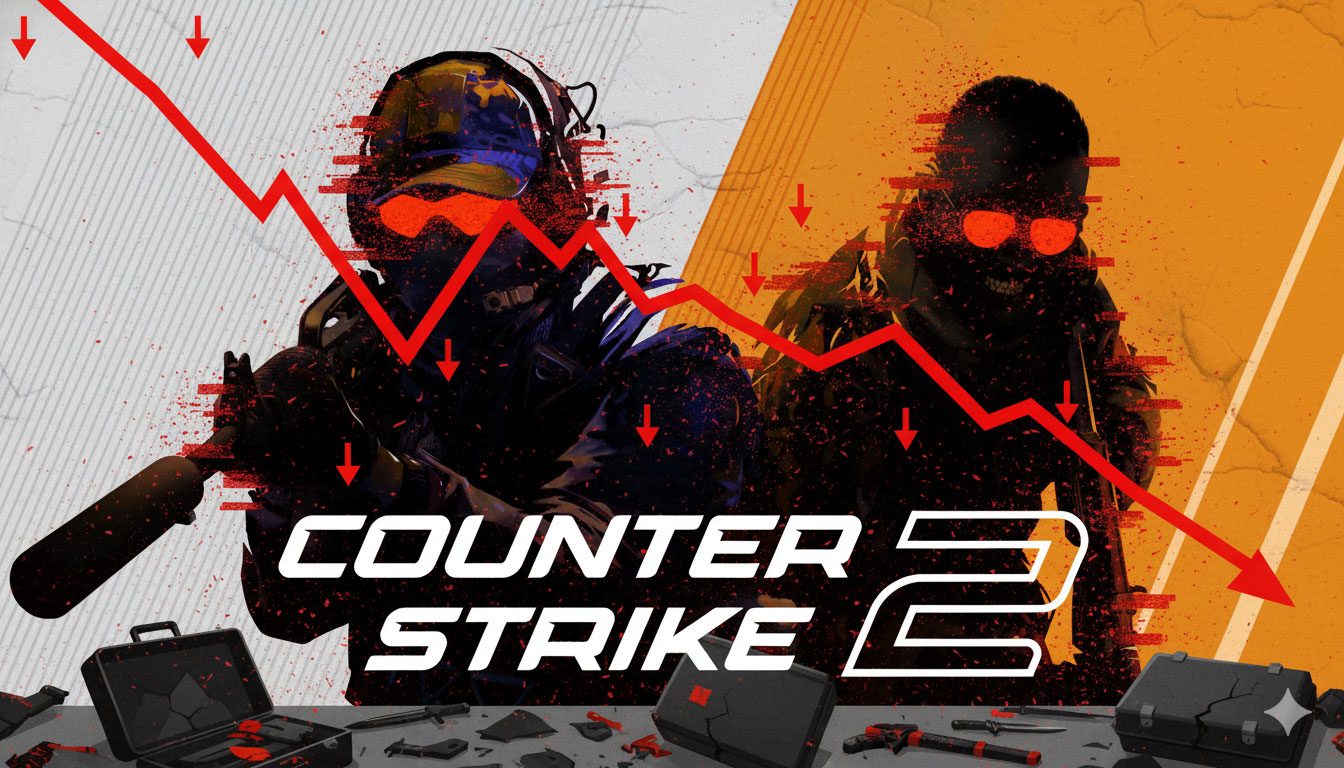Last week, the Counter-Strike 2 economy collapsed - a single update from Valve erased nearly three billion dollars in virtual assets in under 48 hours. What was meant to be a small gameplay tweak ended up detonating the most lucrative in-game market on Earth.
For years, CS skins were a functioning digital economy. Players speculated, traded, and collected them like rare art. Some knives sold for the price of cars. Investors tracked price charts. Entire YouTube channels existed just to unbox crates. Then Valve changed the rules: five “Covert” items could now be traded for a single Gold-tier skin - the kind once treated like myth. Scarcity vanished overnight, and with it, billions in perceived value.
The meltdown was instant. Market dashboards lit up red, traders panic-sold, and forums filled with despair. “I just liquidated everything,” one user wrote. “Valve broke me.”
It would be easy to dismiss this as a niche drama, but it exposes a deeper truth about the creator economy: when you don’t own the system, you don’t control the outcome.

The CS2 crash was about power and control. Thousands of creators built their identity, content, and revenue around an economy they didn’t own. Overnight, their portfolios, audiences, and sponsorship value collapsed because a developer made a decision.
You see, CS2 isn’t really your home - you just rent it. Valve holds the keys, writes the rules, and can change the locks whenever it wants. The same goes for most digital ecosystems. Whether it’s YouTube, Twitch, Roblox, or any walled-garden UGC platform, creators are tenants living at the mercy of landlords who can alter the terms overnight.
Valve didn’t break any rules. In fact, it reminded everyone of them: you don’t own your items; you license them. Steam’s terms make that crystal clear. Your inventory is technically theirs.
That’s the risk every creator faces when their monetization depends entirely on someone else’s platform - whether it’s Twitch ad-splits, YouTube’s algorithm, or a game’s item economy. The system rewards you until it doesn’t.
We’ve seen this movie before: NFTs that tanked overnight, crypto tokens that lost 90 percent of their worth, YouTube channels shut down or demonetized without warning. Even old-school Facebook pages that were removed for no real reason.
This isn’t new, but it seems there are some who forget this important lesson: if the value of your creative output is tied to a single platform’s economy, you’re not a business owner — you’re a stakeholder in a system that can change the rules whenever it wants.
Creators deserve better than that.
That’s where LootLabs stands apart. We believe creators should own their value - not rent it. Your audience, your data, your creative output should be portable, independent, and profitable across ecosystems.
When we talk about creator-first monetization, we mean building systems that aren’t dependent on a single publisher or platform. You shouldn’t need to pray that a patch note doesn’t wipe your income. Your work should have permanence — whether it’s a mod, a digital experience, or original UGC that lives beyond any one game.
Smart creators are already adapting: monetizing communities directly, offering exclusive digital experiences, licensing their own content, and using platforms like LootLabs to generate sustainable income without speculative risk.
The Counter-Strike market crash wasn’t just about lost money - it was about lost control. It showed how quickly “value” disappears when creators don’t have ownership. That’s the hard truth behind the “creator economy.” It feels like ownership because you build communities, generate revenue, and fill dashboards with data. But structurally, it’s still borrowed space. Your following, your items, your monetization tools — all exist inside systems that can vanish, devalue, or demonetize with a single update.
The takeaway is simple but critical: diversify and build on foundations you control.
At LootLabs, we’re building the tools for that future — where creators earn from their imagination, not from volatility. A future where your next big idea isn’t one patch away from extinction.